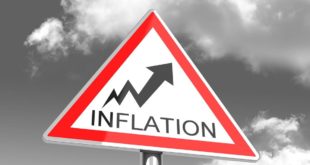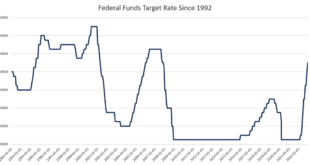Long before there was the infamous German inflation of 1923, the Reichsbank created the scenario of monetary debasement. Original Article: "The Reichsbank: Germany's Central Bank Lays Foundation of Monetary Disaster" This Audio Mises Wire is generously sponsored by Christopher Condon. [embedded content] Tags: Featured,newsletter...
Read More »Notes from the Digital Gulag
As the author of Google Archipelago: The Digital Gulag and the Simulation of Freedom, I guess I should not be surprised to find myself squarely in the digital gulag—banished, perhaps permanently, from Twitter and Facebook. Twitter permanently suspended my account several weeks ago, mere days before Elon Musk took over the helm. Although I cannot be sure, I may have been banned because I suggested that the transgender movement is part of a multipronged neo-Malthusian...
Read More »Grover Cleveland Presented the Best Example of a True Liberal Populist
Six years after the election of Donald Trump, the Republican Party is still adrift. On the one hand, the GOP has embraced an antiestablishment and populist message. On the other hand, Republicans have not quite figured out how to balance populism with classically liberal values like constitutionalism and free markets. Indeed, populism and classical liberalism seem to be in direct conflict. Questions remain about how Republican populists will regulate (or not...
Read More »Student Debt: It Is and Has Been a Personal Choice
The Supreme Court of the United States will hear plaintiff and defendant oral arguments for Biden v. Nebraska in February 2023. That case will determine whether the Biden administration has the constitutional authority to forgive student loan debt and thereby make taxpayers responsible for the debts that students have incurred. This past year President Biden announced that his administration would forgive federal student loans. According to the Congressional Budget...
Read More »Secession: Why the Regime Tolerates Self-Determination for Foreigners, but Not for Americans
Opponents of secession in the United States often choose from several reasons as to why no member state of the United States should be allowed to separate from the rest of the confederation. Some antisecessionists say it’s bad for national security reasons. Others oppose secession for nationalistic reasons, declaring that “we”—whoever that is—shouldn’t “give up on America.” Antisecessionists Believe Self-Determination Leads to “Bad” Laws One of the most popular...
Read More »Why Central Banks Will Choose Recession Over Inflation
While many market participants are concerned about rate increases, they appear to be ignoring the largest risk: the potential for a massive liquidity drain in 2023. Even though December is here, central banks’ balance sheets have hardly, if at all, decreased. Rather than real sales, a weaker currency and the price of the accumulated bonds account for the majority of the fall in the balance sheets of the major central banks. In the context of governments deficits that...
Read More »Austerity: A Real Solution to Help Heal the U.S. Economy
Austerity works. We know what it is and don’t like it, but it works. It usually means cutting your consumption and spending, paying down your debts, pawning assets, and working more hours to restore your economic situation. You might invoke “austerity” because you lost your job, your house burned down, or you have an unexpected child on the way. You might take similar actions if the economy was in crisis. It’s essentially the same thing as cutting expenses to save...
Read More »The Fed’s Powell Admits “I Don’t Know What We’ll Do” in 2023
The Federal Reserve’s Federal Open Market Committee (FOMC) on Wednesday announced it will raise the target federal funds rate by 50 basis points, bringing the target rate to 4.5 percent. Wednesday’s rate hike followed four hikes in a row of 75 basis points, and is the smallest rate hike since March. According to the FOMC’s press release, the committee voted unanimously for the half point hike, pointing out that “[price] inflation remains elevated” while also...
Read More »Keynesian Policies Gave Us High Debt, Inflation, and Weak Growth
The evidence from the last thirty years is clear. Keynesian policies leave a massive trail of debt, weaker growth and falling real wages. Furthermore, once we look at each so-called stimulus plan, reality shows that the so-called multiplier effect of government spending is virtually nonexistent and has long-term negative implications for the health of the economy. Stimulus plans have bloated government size, which in turn requires more dollars from the real economy...
Read More »Decentralization, Freedom, and Peace Are the Pillars of a Free Society
[This article is the foreword to Breaking Away: The Case of Secession, Decentralization, and Smaller Polities, by Ryan McMaken, available in PDF, at the Mises store, and on Amazon.] Classical liberal tradition defends the right of secession on many grounds. One of the main reasons is that the territorial dispersion of power limits political domination much more than formal constitutions do. Small states cannot easily adopt protectionist policies and their political...
Read More » Swiss Economicblogs.org
Swiss Economicblogs.org









